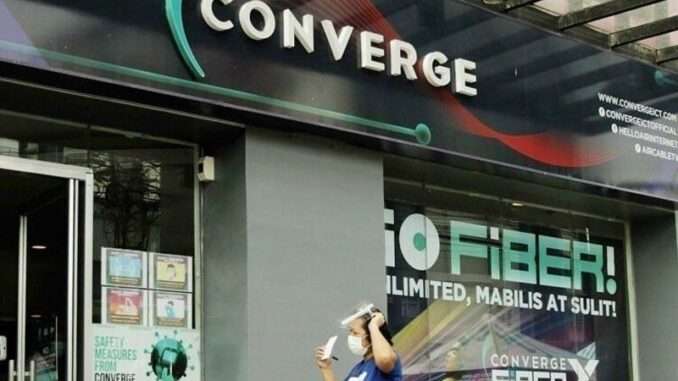
Piso WiFi
MANILA, Philippines — Broadband provider Converge ICT Solutions Inc. has its eyes set on penetrating another low-cost segment, known as piso WiFi, to maximize its fiber lines and widen its national coverage.
Converge CEO and co-founder Dennis Anthony Uy is coming up with a product that would cater to low-income consumers who pay for their internet connection by the hour.
Initial studies by Converge showed that about 30 percent of internet users in the Philippines rely on sachet-sized broadband to connect to the web, compelling Uy to scan the market for possible opportunities, similar to how it developed its budget options Surf2Sawa and BIDA Fiber.
“That [piso WiFi] is another segment of the market, and that is big. We think it easily corners 30 percent of the entire market, so we need to go and touch that ground to understand it,” Uy said in an interview with The STAR.
In urban poor areas, Uy noticed that almost all access the internet through prepaid. This is where the business of piso WiFi thrives the most, giving Filipinos pay-per-use connectivity for P1 for 10 minutes, P5 for an hour, P10 for two hours and P20 for five hours.
Piso WiFi machines are installed in public spaces like sari-sari stores where consumers can drop their coins to gain a unique password for internet access.
Uy believes that promoting piso WiFi bridges the digital gap in underserved markets, where consumers lack the financial capability to avail themselves of a postpaid plan.
“You cannot force them (consumers) to do subscriptions. We are the sachet capital of the world, and 95 percent of mobile data users are still prepaid. We need to think of ways to be able to bring every individual connected, and mine is to segmentize the market,” Uy said.
Uy believes that Converge can succeed in the prepaid segment, having launched Surf2Sawa in 2023 to cater to low-income families. Surf2Sawa provides unlimited broadband for P50 per day, P200 for seven days, P380 for 15 days and P700 for 30 days.
Since then, Converge has grown its customer base to 2.46 million, of which 241,848 come from prepaid. Further, the company vying to become the broadband leader is sourcing five percent of its revenue from low-cost services, and projections are it would grow further in the future.
Similarly, Converge is trying to maximize its portfolio of fiber lines by bringing in new products that could attract fresh customers.
As of September, Converge manages 8.93 million fiber ports nationwide, but utilization stands at just 28.2 percent, leaving room for customer expansion.
Infrawatch PH convenor and former lawmaker Terry Ridon said Converge could hit a gold mine in its plan to infiltrate the growing market for piso WiFi.
Ridon said consumers in this segment prioritize affordability in their connectivity service, unlike among high-income users who demand speed. Usually, they buy short-time internet just to finish essential tasks, and whatever remains of their data is used for online leisure.
“This segment’s expectation on internet services is primarily focused on affordable, reliable and stable internet services. They may forgo expectations on fastest speeds, for as long as telcos can deliver on the lowest price, while ensuring that their typical internet use for necessary and leisure activities can be fulfilled,” Ridon told the STAR.
Uy said Converge may have to partner with local vendors of piso WiFi to enter the market, with the company supplying its fiber lines as the backbone network.
However, Converge would have to do due diligence before it proceeds with this new venture, as the company also took two years to study the business model and viability of Surf2Sawa.
Converge is the second largest broadband provider in the Philippines behind PLDT Inc., but it is keen on claiming market leadership now that it is serving all segments of economic classes.


Be the first to comment